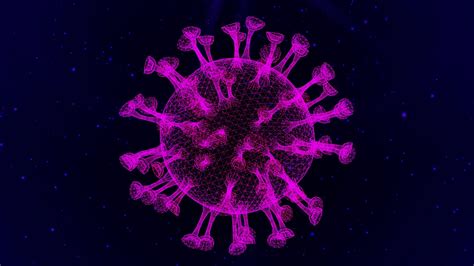
A change in the dominant COVID-19 variant is bringing a potentially alarming symptom to the forefront: sudden, noticeable hair loss. Experts are emphasizing the importance of staying informed, managing stress, and maintaining a healthy lifestyle to mitigate the effects of this symptom and protect overall health. While not typically life-threatening, the psychological impact of hair loss can be significant, and understanding the underlying causes is crucial for effective management.
The emergence of new COVID-19 variants continues to shift the landscape of the pandemic, bringing with it a change in the most commonly reported symptoms. While earlier strains were primarily associated with fever, cough, and loss of taste or smell, the latest variants are presenting with a different and potentially distressing symptom: hair loss. Health experts are now advising individuals to be aware of this development and to take proactive measures to manage the condition and protect their overall well-being.
Telogen Effluvium: The Culprit Behind Hair Loss
The type of hair loss being linked to COVID-19 is known as telogen effluvium (TE). TE is a temporary condition characterized by excessive shedding of hair, often triggered by a stressful event, illness, or physiological change. “Telogen effluvium is a well-recognized phenomenon that occurs after major stressors,” explained Dr. Shilpi Khetarpal, a dermatologist at the Cleveland Clinic. “COVID-19 can be a significant stressor on the body, pushing hair follicles into the telogen, or shedding, phase.”
During a normal hair growth cycle, hair follicles go through phases of growth (anagen), transition (catagen), and rest (telogen). In TE, a larger-than-normal percentage of hair follicles enter the telogen phase prematurely, leading to increased shedding. This shedding usually becomes noticeable several weeks or months after the triggering event.
“It’s important to understand that hair loss after COVID-19 is usually temporary,” assures Dr. Khetarpal. The hair follicles are still present and capable of regrowth. However, the shedding can be profuse and alarming, leading to considerable anxiety for those affected.
Why Hair Loss is Happening Now
The delayed onset of TE is a key factor in why it is now being recognized as a prominent symptom of COVID-19. The stress and physiological impact of the initial infection may have occurred several months ago, and the resulting hair shedding is only now becoming apparent. This lag time can make it difficult for individuals to immediately connect their hair loss to a previous COVID-19 infection.
Moreover, the ongoing nature of the pandemic, with repeated waves of infection and associated stress, may be contributing to a higher incidence of TE. Individuals who have experienced multiple COVID-19 infections or have been subjected to chronic stress related to the pandemic may be particularly vulnerable to developing this condition.
The type of hair loss associated with the COVID-19 virus, telogen effluvium, has been described by medical professionals as being typically temporary. However, it can still be a distressing experience for many who are affected.
Managing Hair Loss After COVID-19: Expert Recommendations
While hair loss following a COVID-19 infection can be unsettling, experts emphasize that there are several steps individuals can take to manage the condition and promote hair regrowth:
-
Manage Stress: Stress is a major trigger for TE. Implementing stress-reduction techniques, such as mindfulness, meditation, yoga, or spending time in nature, can help mitigate the impact of stress on hair follicles. “Finding ways to manage stress is crucial for overall health, including hair health,” advises Dr. Khetarpal. Engage in activities that promote relaxation and well-being.
-
Maintain a Healthy Diet: A balanced and nutritious diet is essential for supporting hair growth. Ensure adequate intake of protein, iron, zinc, vitamins, and other essential nutrients. Consider consulting with a healthcare professional or registered dietitian to assess your nutritional needs and identify any deficiencies.
-
Gentle Hair Care: Avoid harsh hair treatments, such as excessive heat styling, perming, or coloring, which can further damage hair follicles and exacerbate shedding. Use gentle shampoos and conditioners, and avoid pulling or tugging on the hair when brushing or styling.
-
Consult a Dermatologist: If hair loss is severe or persistent, it is important to consult with a dermatologist. A dermatologist can evaluate the underlying cause of the hair loss and recommend appropriate treatment options, such as topical medications, oral supplements, or light therapy. They can also rule out other potential causes of hair loss, such as thyroid disorders or autoimmune conditions.
-
Be Patient: Hair regrowth takes time. It can take several months for hair follicles to recover and for new hair to grow. Be patient and consistent with your hair care routine and stress-management techniques. “It’s important to be patient and allow the hair follicles time to recover,” advises Dr. Khetarpal.
-
Consider Supplements: Certain supplements may help support hair growth, such as biotin, iron, zinc, and vitamin D. However, it is important to consult with a healthcare professional before taking any supplements, as excessive intake of certain nutrients can be harmful.
-
Avoid Restrictive Diets: Very low-calorie diets or crash diets can deprive the body of essential nutrients, leading to hair loss. Maintain a balanced and sustainable diet that provides adequate nutrition.
-
Stay Hydrated: Dehydration can affect hair health. Drink plenty of water throughout the day to keep your hair follicles hydrated and healthy.
-
Scalp Massage: Regular scalp massage can stimulate blood flow to the hair follicles, promoting hair growth. Use your fingertips to gently massage your scalp in circular motions for a few minutes each day.
-
Topical Treatments: Over-the-counter topical treatments containing minoxidil (Rogaine) may help stimulate hair growth. However, it is important to follow the instructions carefully and to consult with a dermatologist before using these products.
The Psychological Impact of Hair Loss
While telogen effluvium is typically a temporary condition, the psychological impact of hair loss can be significant. Hair is often associated with identity, self-esteem, and attractiveness. Losing hair can lead to feelings of anxiety, depression, and social isolation.
It is important to acknowledge and address the emotional distress associated with hair loss. Seeking support from friends, family, or a therapist can be helpful. Online support groups can also provide a sense of community and shared experience.
“It’s important to remember that you are not alone,” emphasizes Dr. Khetarpal. “Many people experience hair loss, and there are resources available to help you cope.”
Distinguishing TE from Other Types of Hair Loss
It is important to distinguish telogen effluvium from other types of hair loss, such as:
- Androgenetic Alopecia (Male or Female Pattern Baldness): This is a genetic condition that causes gradual hair thinning over time.
- Alopecia Areata: This is an autoimmune condition that causes patchy hair loss.
- Scarring Alopecia: This is a condition that causes permanent damage to hair follicles, leading to irreversible hair loss.
A dermatologist can help determine the underlying cause of your hair loss and recommend appropriate treatment.
Long COVID and Hair Loss
While telogen effluvium is typically a temporary condition, some individuals with long COVID may experience more persistent hair loss. Long COVID refers to a range of symptoms that can persist for weeks or months after the initial COVID-19 infection. The mechanisms underlying long COVID are not fully understood, but it is thought that chronic inflammation, immune dysregulation, and microvascular damage may play a role.
If you are experiencing persistent hair loss as part of long COVID, it is important to consult with a healthcare professional who specializes in long COVID management. They can help identify potential contributing factors and recommend appropriate treatment strategies.
The Importance of Staying Informed
The evolving nature of the COVID-19 pandemic underscores the importance of staying informed about new symptoms and potential complications. Regularly consult with reliable sources of information, such as the Centers for Disease Control and Prevention (CDC), the World Health Organization (WHO), and your healthcare provider.
By staying informed and taking proactive measures, you can protect your health and well-being during this challenging time.
Preventative Measures to Mitigate Hair Loss Risk During COVID-19
While hair loss may not be entirely preventable following a COVID-19 infection, certain preventative measures can help mitigate the risk and promote overall hair health:
-
Vaccination: Vaccination against COVID-19 can reduce the severity of the infection and potentially lower the risk of developing complications, including hair loss.
-
Early Treatment: Seeking early treatment for COVID-19 can help minimize the severity of the illness and reduce the risk of long-term complications.
-
Stress Management: Managing stress levels before, during, and after a COVID-19 infection can help prevent hair follicles from entering the telogen phase prematurely.
-
Healthy Lifestyle: Maintaining a healthy lifestyle, including a balanced diet, regular exercise, and adequate sleep, can support overall health and resilience.
-
Avoid Smoking: Smoking can damage hair follicles and increase the risk of hair loss.
-
Limit Alcohol Consumption: Excessive alcohol consumption can also contribute to hair loss.
-
Proper Hydration: Staying adequately hydrated is crucial for overall health, including hair health.
Future Research and Developments
Ongoing research is focused on better understanding the mechanisms underlying hair loss after COVID-19 and developing more effective treatment strategies. Future research may explore the role of specific inflammatory mediators, immune cells, and genetic factors in the pathogenesis of telogen effluvium. Additionally, clinical trials are underway to evaluate the efficacy of novel therapies for promoting hair regrowth and managing the psychological impact of hair loss.
The long-term effects of COVID-19 on hair health are also being investigated. Longitudinal studies are needed to assess the prevalence and duration of hair loss in individuals who have recovered from COVID-19 and to identify potential risk factors for persistent hair loss.
The Role of Nutrition in Hair Health Post-COVID
Nutrition plays a crucial role in hair health, especially during the recovery phase after a COVID-19 infection. Deficiencies in certain nutrients can exacerbate hair loss and hinder regrowth. Therefore, it’s essential to ensure adequate intake of the following nutrients:
- Protein: Hair is primarily composed of protein (keratin). Adequate protein intake is crucial for hair growth and repair. Good sources of protein include lean meats, poultry, fish, eggs, dairy products, beans, lentils, and tofu.
- Iron: Iron deficiency is a common cause of hair loss. Iron helps carry oxygen to hair follicles, promoting growth. Good sources of iron include red meat, poultry, fish, beans, lentils, spinach, and fortified cereals.
- Zinc: Zinc is essential for hair tissue growth and repair. It also helps keep the oil glands around hair follicles working properly. Good sources of zinc include oysters, beef, poultry, nuts, seeds, and whole grains.
- Biotin: Biotin is a B vitamin that plays a role in keratin production. While biotin deficiency is rare, supplementation may help improve hair growth in some individuals. Good sources of biotin include eggs, nuts, seeds, sweet potatoes, and liver.
- Vitamin D: Vitamin D deficiency has been linked to hair loss. Vitamin D helps stimulate hair follicle growth. Good sources of vitamin D include fatty fish, egg yolks, fortified milk, and sunlight exposure.
- Vitamin C: Vitamin C is an antioxidant that helps protect hair follicles from damage. It also helps the body absorb iron. Good sources of vitamin C include citrus fruits, berries, peppers, and broccoli.
- Omega-3 Fatty Acids: Omega-3 fatty acids help reduce inflammation and promote hair health. Good sources of omega-3 fatty acids include fatty fish, flaxseeds, chia seeds, and walnuts.
In addition to consuming a nutrient-rich diet, consider taking a multivitamin or mineral supplement to ensure you are meeting your nutritional needs. Consult with a healthcare professional or registered dietitian to determine the appropriate dosage and type of supplement for you.
Hair Care Practices to Minimize Damage and Encourage Regrowth
Adopting gentle hair care practices can help minimize damage and encourage regrowth after experiencing hair loss from COVID-19:
-
Use a Gentle Shampoo: Choose a shampoo that is sulfate-free and formulated for sensitive scalps. Sulfates can strip the hair of its natural oils, leading to dryness and breakage.
-
Avoid Over-Washing: Washing your hair too frequently can also strip it of its natural oils. Aim to wash your hair every other day or every few days, depending on your hair type and activity level.
-
Condition Your Hair Regularly: Use a conditioner after shampooing to help moisturize and detangle your hair. Focus on applying conditioner to the ends of your hair, avoiding the scalp.
-
Use a Wide-Toothed Comb: When detangling your hair, use a wide-toothed comb to gently remove knots. Start at the ends of your hair and work your way up to the roots.
-
Avoid Heat Styling: Excessive heat styling can damage hair follicles and lead to breakage. Minimize the use of heat styling tools, such as blow dryers, curling irons, and straightening irons. If you must use heat styling tools, use a heat protectant spray to help shield your hair from damage.
-
Avoid Tight Hairstyles: Tight hairstyles, such as ponytails, braids, and buns, can put stress on hair follicles and lead to breakage. Opt for looser hairstyles that don’t pull on your hair.
-
Protect Your Hair from the Sun: Prolonged exposure to the sun can damage hair follicles. Wear a hat or scarf to protect your hair from the sun’s harmful rays.
-
Avoid Chemical Treatments: Chemical treatments, such as perms, relaxers, and hair dyes, can damage hair follicles. Avoid these treatments until your hair has fully recovered from the hair loss.
Seeking Professional Help: When to See a Doctor
While telogen effluvium is often a self-limiting condition, it’s essential to seek professional help if you experience any of the following:
- Severe Hair Loss: If you are experiencing significant hair loss that is causing you distress, consult a dermatologist.
- Persistent Hair Loss: If your hair loss persists for more than six months, seek medical attention.
- Other Symptoms: If you experience other symptoms along with hair loss, such as scalp itching, redness, or scaling, consult a dermatologist.
- Uncertainty: If you are unsure about the cause of your hair loss, it’s best to see a doctor for diagnosis and treatment.
A dermatologist can perform a thorough examination of your scalp and hair, conduct blood tests to rule out underlying medical conditions, and recommend appropriate treatment options. Treatment options may include topical medications, oral medications, light therapy, or hair transplant surgery.
The Importance of Self-Care and Support
Experiencing hair loss can be emotionally challenging. It’s important to practice self-care and seek support from friends, family, or a therapist. Here are some tips for coping with hair loss:
- Acknowledge Your Feelings: Allow yourself to feel your emotions without judgment. It’s normal to feel sad, anxious, or frustrated about hair loss.
- Practice Self-Compassion: Be kind to yourself and avoid negative self-talk. Remember that hair loss is a common condition, and you are not alone.
- Seek Support: Talk to friends, family, or a therapist about your feelings. Sharing your experiences can help you cope with the emotional impact of hair loss.
- Join a Support Group: Consider joining a support group for people with hair loss. Connecting with others who understand what you are going through can provide comfort and encouragement.
- Focus on What You Can Control: While you may not be able to control the hair loss itself, you can control other aspects of your life, such as your diet, exercise routine, and stress levels.
- Explore Hair Loss Solutions: If you are interested in exploring hair loss solutions, such as wigs, hairpieces, or hair extensions, research your options and consult with a professional.
- Practice Mindfulness: Mindfulness techniques, such as meditation and deep breathing, can help reduce stress and anxiety.
- Engage in Activities You Enjoy: Make time for activities that you find enjoyable and relaxing. This can help improve your mood and reduce stress.
- Remember That Hair Loss Is Temporary: In most cases, hair loss after COVID-19 is temporary. Be patient and focus on taking care of yourself, and your hair will likely grow back.
FAQ: Hair Loss and COVID-19
-
Is hair loss a common symptom of COVID-19? Yes, hair loss, specifically telogen effluvium (TE), is becoming a recognized symptom following a COVID-19 infection. This is a temporary condition where hair shedding increases due to stress on the body. “Telogen effluvium is a well-recognized phenomenon that occurs after major stressors,” explained Dr. Shilpi Khetarpal, a dermatologist at the Cleveland Clinic. “COVID-19 can be a significant stressor on the body, pushing hair follicles into the telogen, or shedding, phase.”
-
How long after having COVID-19 does hair loss typically occur? Hair loss usually becomes noticeable several weeks or months after the COVID-19 infection. This delayed onset is because hair follicles enter the resting (telogen) phase before shedding.
-
Is the hair loss from COVID-19 permanent? No, the hair loss associated with COVID-19 (telogen effluvium) is typically temporary. Hair follicles are still present and capable of regrowth, though it may take several months for hair to fully recover. “It’s important to understand that hair loss after COVID-19 is usually temporary,” assures Dr. Khetarpal.
-
What can I do to manage hair loss after having COVID-19? Managing stress, maintaining a healthy diet rich in protein, iron, and vitamins, using gentle hair care practices, and consulting a dermatologist if the hair loss is severe or persistent are recommended. Scalp massages and certain supplements might also help.
-
When should I see a doctor about my hair loss after COVID-19? Consult a dermatologist if the hair loss is severe, persistent for more than six months, or accompanied by other symptoms like scalp itching, redness, or scaling. It’s also wise to seek medical advice if you’re unsure about the cause of your hair loss.









